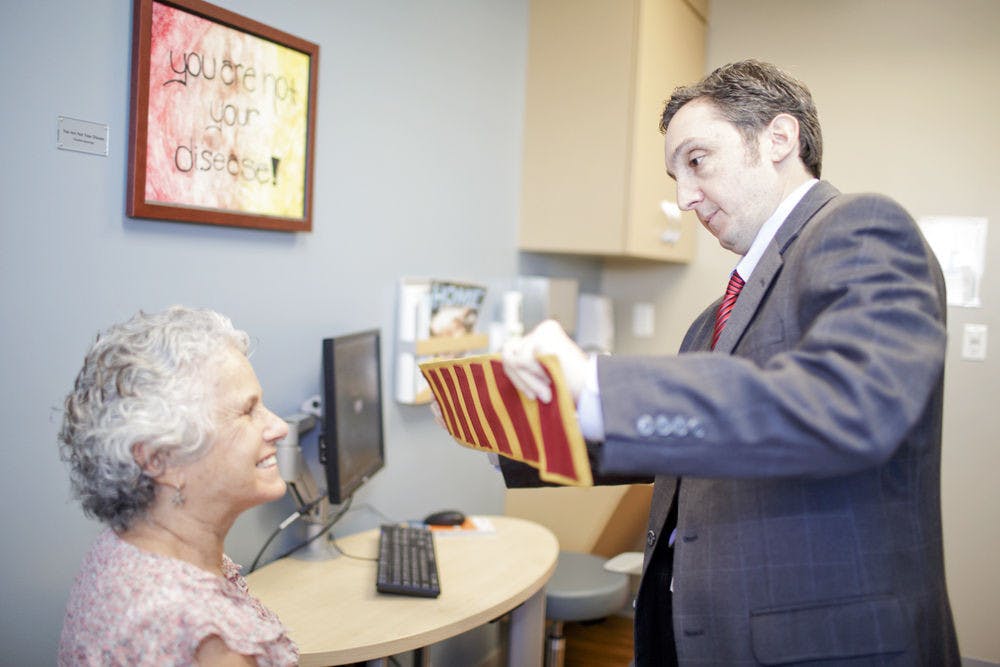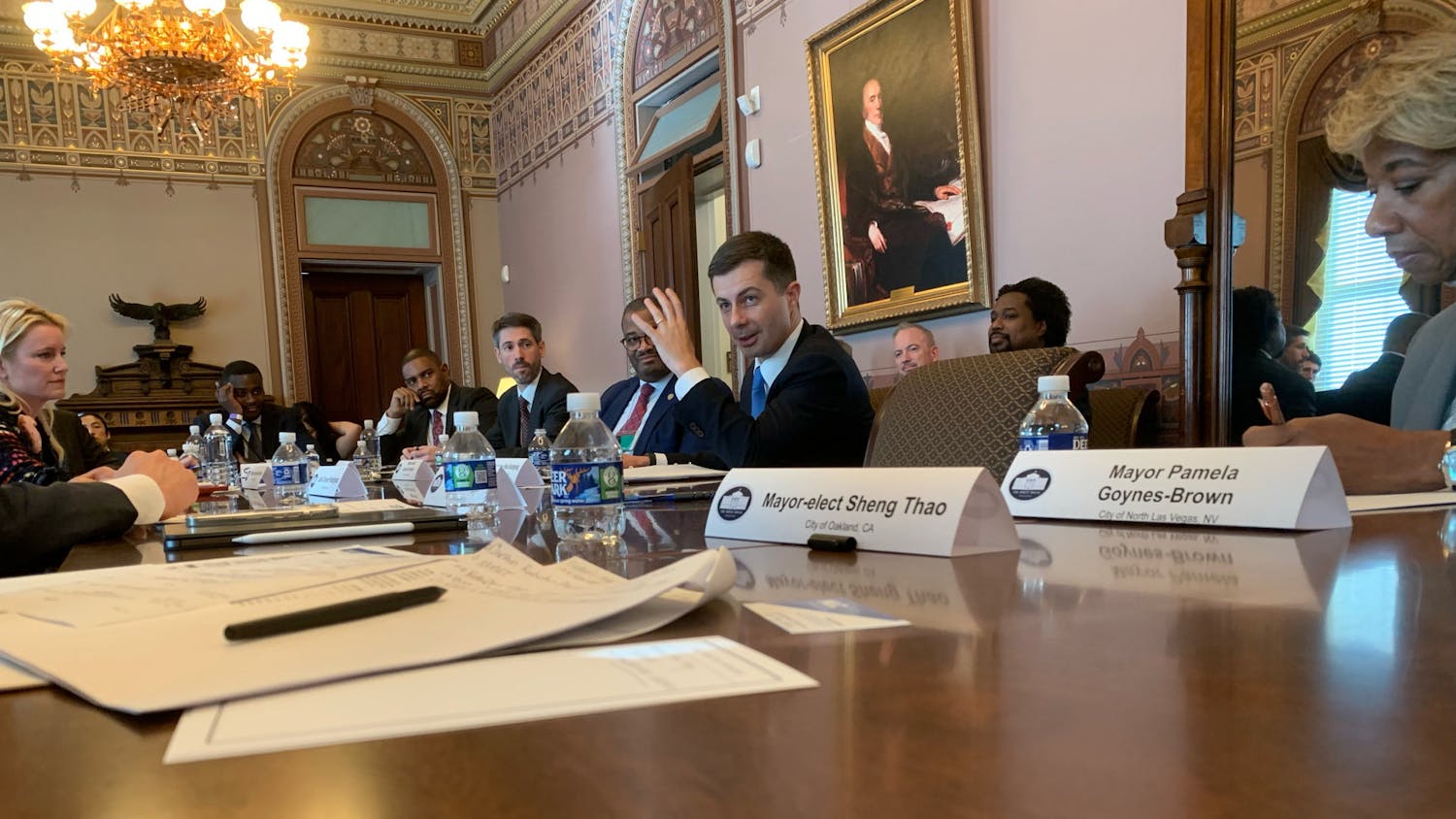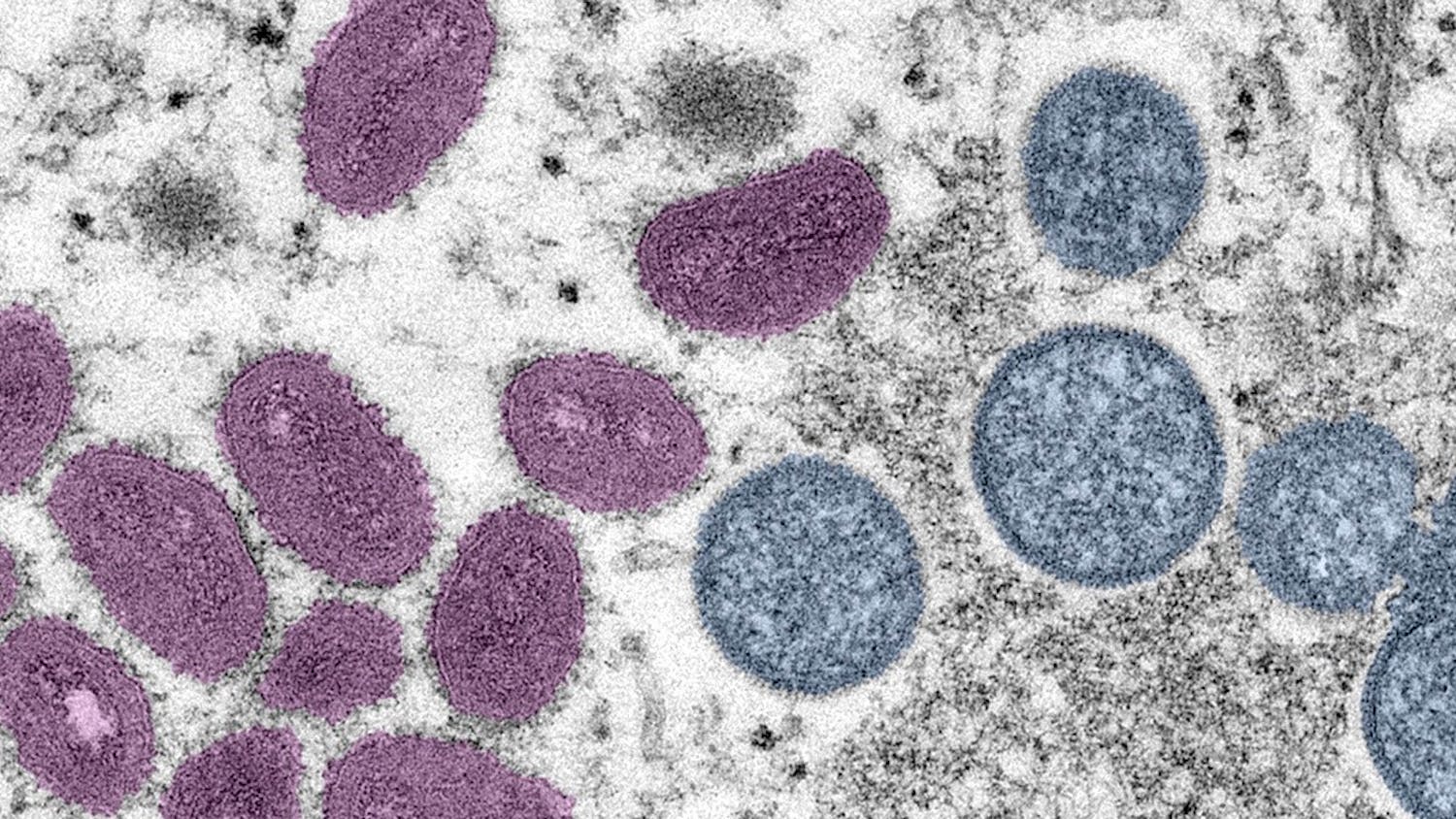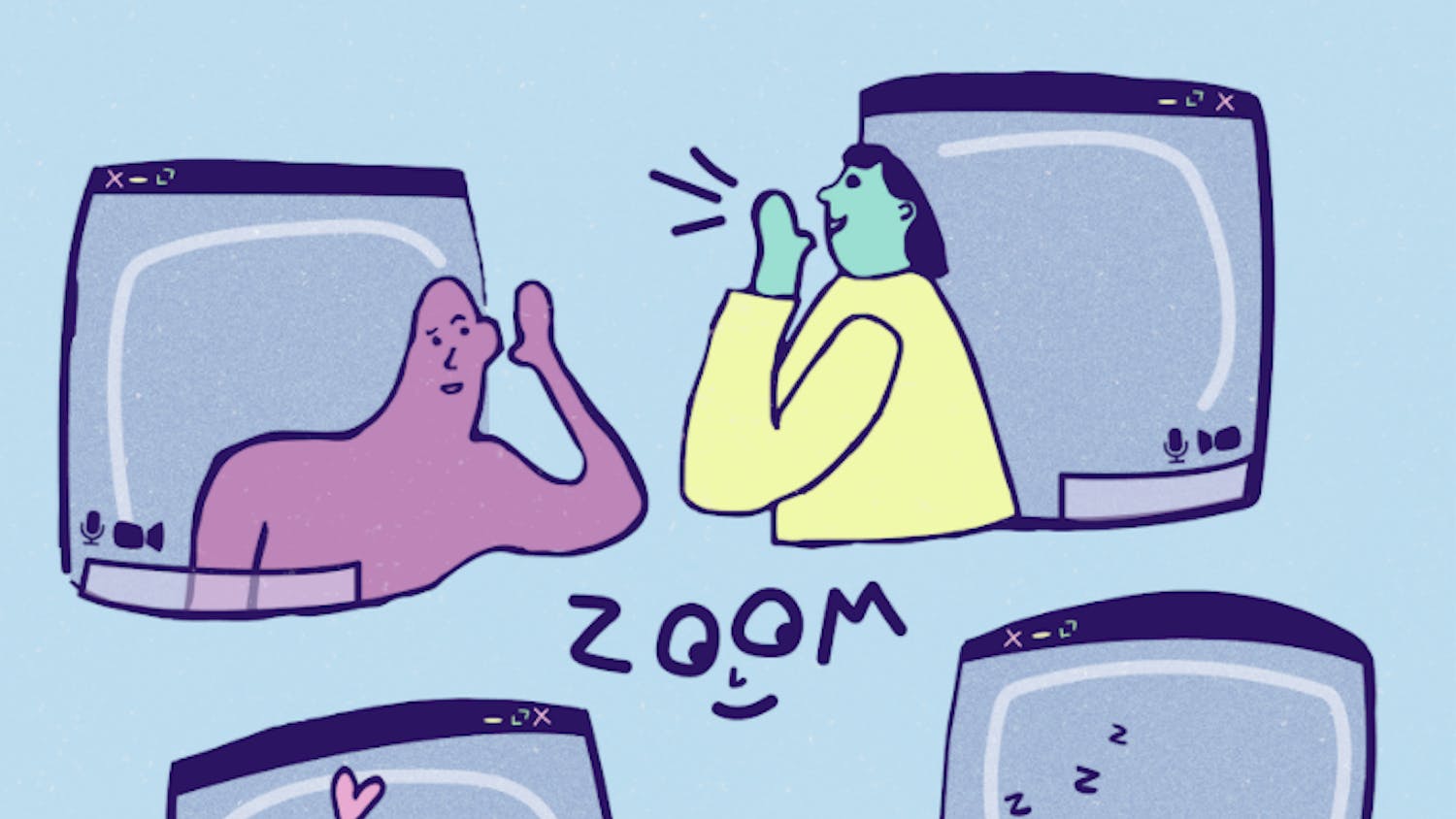Gretchen Church was 32 years old when she was diagnosed with Parkinson’s disease almost 17 years ago.
It was a time when there was hardly support for people with Parkinson’s, especially for those like her with young-onset Parkinson’s disease.
“It is no longer just your grandpa’s disease,” she said.
Church said she used an Internet message board for people with Parkinson’s disease, where she ended up meeting her husband, Michael.
The Churches are two of Michael Okun’s patients at the UF Health Center for Movement Disorders and Neurorestoration.
On March 23, Okun was a member of a Champions of Change panel at the White House addressing Parkinson’s treatments and research.
In an email, he wrote that he hopes the panel will start a national conversation about Parkinson’s and urge people to help the more than 1 million Americans living with Parkinson’s disease.
The four simple words “you have Parkinson’s disease” will drain the dreams of 50,000 people worldwide each year, Okun said, but he and other medical professionals can make a difference in their lives.
“It is up to our generation to carry this message forward as we continue to innovate future treatments,” he said.
Church said the care she and her husband have received at the center has greatly improved the quality of their lives, and, most importantly, it’s given them hope. The couple shook with tremors and had memory loss, among other nonmotor issues.
They both went through deep brain stimulation surgery at the center, and Church said the care from Okun and his staff changed their lives.
“We were at the point where our quality of life was suffering so badly because of the symptoms of Parkinson’s that we were finding it more and more difficult to be able to reach out and do what we needed to do,” she said.
The Churches attended the panel and said doctors, researchers and patients shared stories, answered questions and spoke about overcoming the disease. They went to Washington, D.C., to advocate for Parkinson’s funding from the National Institutes of Health.
After their surgeries, the Churches continued their Parkinson’s disease advocacy work with their nonprofit organization, Movers & Shakers. They also speak around the world about their experiences and work as state directors for the Parkinson’s Action Network. Church said she doesn’t believe they could have continued without their surgeries at UF Health.
“While we have Parkinson’s, Parkinson’s doesn’t have us,” Church said.
Okun said there is a worldwide crisis of misinformation. Parkinson’s is not the end of the world, he said. In fact, it can become the beginning of a wonderful journey and a meaningful life.
[A version of this story ran on page 3 on 3/31/2015 under the headline “UF doctor hosted at White House for Parkinson’s panel”]
Dr. Michael Okun (right), a doctor at the UF Center for Movement Disorders and Neurorestoration, interacts with a patient. Okun was a member of a Champions for Change panel at the White House last Monday addressing Parkinson’s treatments and research.






